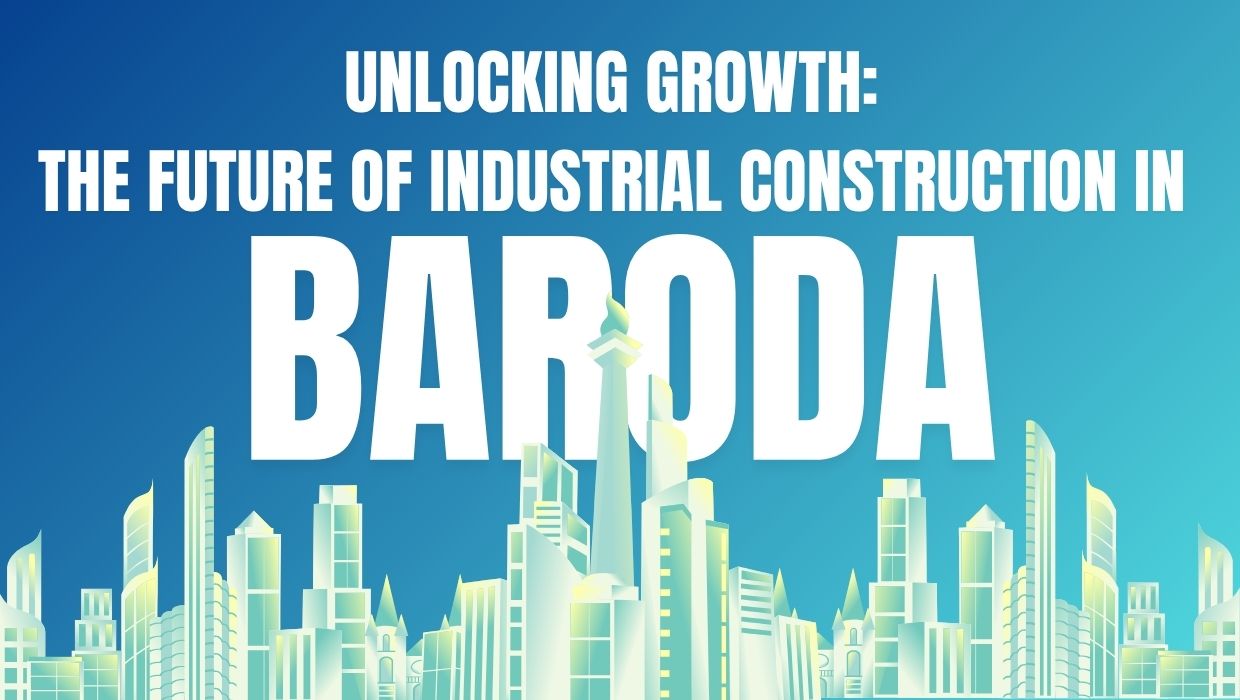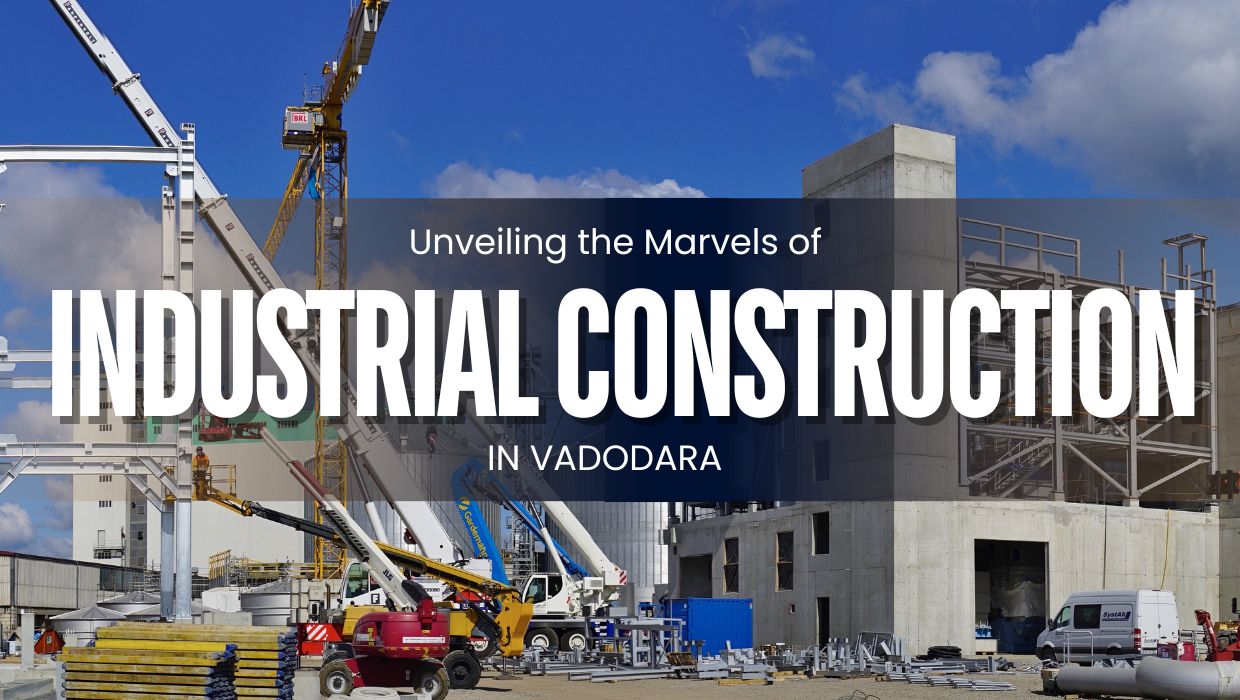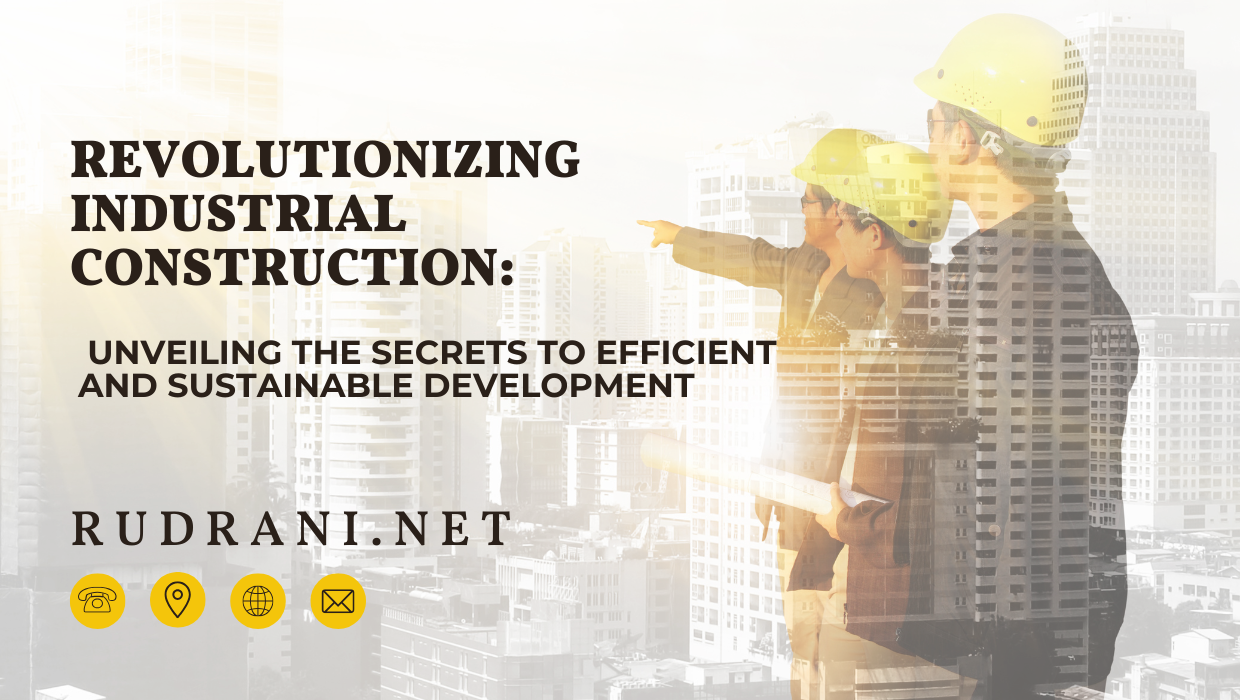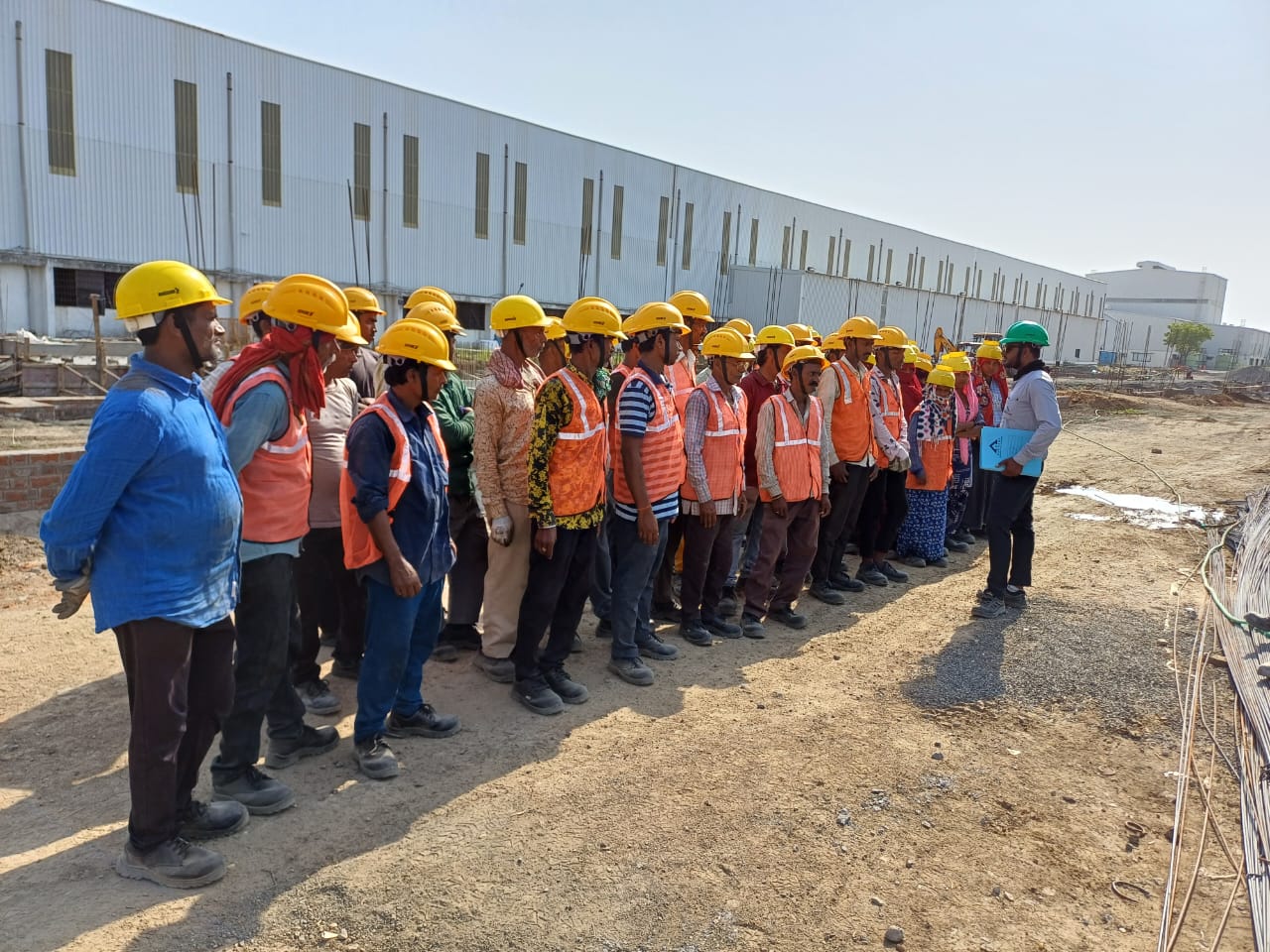
As Baroda continues to evolve into a bustling hub of industrial activity, the future of industrial construction in the city is brimming with potential. With a growing demand for innovative infrastructure, businesses are poised to embrace cutting-edge techniques and sustainable practices that will redefine the skyline. This transformative journey not only aims to boost local economies but also positions Baroda as a key player in the global market. From smart factories equipped with the latest technology to eco-friendly developments promoting green building initiatives, the landscape of industrial construction is rapidly changing. In this article, we’ll delve into emerging trends, key players, and the challenges ahead, unlocking the secrets to growth that will shape the future of industrial construction in Baroda. Join us as we explore this exciting frontier, where ambition meets opportunity and innovation paves the way for sustainable development.
Overview of Industrial Construction in Baroda
Baroda, also known as Vadodara, has long been recognized as an industrial powerhouse, featuring a diverse array of industries ranging from petrochemicals to engineering. Over the years, the city has experienced consistent growth in industrial activities, supported by its strategic location and robust infrastructure. As Baroda evolves, so does its industrial landscape, which is now positioned for significant transformation. This evolution is driven by a combination of economic, technological, and environmental factors reshaping industrial construction approaches.
The industrial sector in Baroda is characterized by dynamic growth and adaptability. Historically, the city has hosted some of the largest and most influential industrial projects in the country. Local companies have consistently demonstrated their ability to innovate and expand, capitalizing on the city’s strong logistical capabilities and skilled workforce. Today, the focus is shifting toward more sustainable and technologically advanced practices in industrial construction, a trend expected to define the sector’s future.
The demand for modern industrial facilities is on the rise, as businesses seek to enhance their operational efficiency and environmental sustainability. This need is prompting the development of new industrial zones alongside upgrades to existing infrastructure. The transformation is evident in the construction of smart factories, eco-industrial parks, and green buildings, all aimed at reducing environmental impact while boosting productivity. As Baroda continues to attract investments from both domestic and international players, the city’s industrial construction sector is poised to play a crucial role in its economic growth.
The industrial sector in Baroda is characterized by its dynamic growth and adaptability. Historically, the city has been home to some of the largest and most influential industrial projects in the country. Companies in Baroda have consistently demonstrated their ability to innovate and expand, capitalizing on the city’s strong logistical capabilities and skilled workforce. Today, the focus is shifting towards more sustainable and technologically advanced industrial construction practices, a trend that is expected to define the future of the sector.
The demand for modern industrial facilities is rising, with businesses seeking to enhance their operational efficiency and environmental sustainability. This is leading to the development of new industrial zones and the upgrade of existing infrastructures. The transformation is evident in the construction of smart factories, eco-industrial parks, and green buildings, all of which aim to reduce the environmental footprint while boosting productivity. As Baroda continues to attract investment from both domestic and international players, the city’s industrial construction sector is set to play a pivotal role in its economic growth.
Current Trends Shaping the Industry
The industrial construction sector in Baroda is witnessing a paradigm shift driven by several emerging trends. One of the most significant trends is the adoption of smart technologies. The integration of Internet of Things (IoT), artificial intelligence (AI), and big data analytics is revolutionizing the way construction projects are planned and executed. These technologies enable real-time monitoring, predictive maintenance, and enhanced decision-making, leading to increased efficiency and reduced costs.
Another notable trend is the emphasis on sustainable construction practices. With growing awareness of environmental issues and stringent regulations, there is a concerted effort to minimize the carbon footprint of industrial projects. This includes the use of sustainable materials, energy-efficient systems, and waste reduction strategies. Green building certifications, such as LEED (Leadership in Energy and Environmental Design), are becoming more prevalent, reflecting the industry’s commitment to sustainability.
The rise of modular construction is also shaping the future of industrial construction in Baroda. This approach involves the off-site fabrication of building components, which are then transported and assembled on-site. Modular construction offers several advantages, including shorter construction timelines, improved quality control, and reduced waste. As the demand for rapid and efficient construction solutions grows, modular construction is gaining traction as a viable alternative to traditional methods.
Key Drivers of Growth in Baroda’s Industrial Sector
Several factors are driving the growth of the industrial construction sector in Baroda. One of the primary drivers is the city’s strategic location. Baroda is well-connected to major industrial hubs and ports, making it an attractive destination for businesses looking to establish or expand their operations. The city’s excellent transportation network, including highways, railways, and an international airport, further enhances its logistical advantages.
Another key driver is the availability of a skilled and diverse workforce. Baroda boasts a strong educational infrastructure, with numerous engineering and technical institutes producing a steady stream of qualified professionals. This talent pool is crucial for supporting the growth of the industrial sector, as it ensures that businesses have access to the expertise needed to drive innovation and efficiency.
Government support and favorable policies are also playing a significant role in the sector’s growth. The state and central governments have implemented various initiatives and incentives to attract investment and promote industrial development in Baroda. These include tax holidays, subsidies, and streamlined regulatory processes. Additionally, the government’s focus on improving infrastructure and ease of doing business is creating a conducive environment for industrial growth.
The Role of Technology in Modern Construction
Technological advancements are transforming the industrial construction sector in Baroda, ushering in a new era of innovation and efficiency. One of the most impactful technologies is Building Information Modeling (BIM). BIM is a digital representation of the physical and functional characteristics of a building, which facilitates collaboration among stakeholders and streamlines the construction process. By providing a comprehensive and accurate model, BIM helps in identifying potential issues early on, reducing errors, and ensuring that projects are completed on time and within budget.
Robotics and automation are also making significant inroads into the construction industry. Automated construction equipment, such as drones and robotic arms, are being used for tasks ranging from site surveys to bricklaying. These technologies not only enhance productivity but also improve safety by reducing the need for manual labor in hazardous conditions. The use of 3D printing in construction is another exciting development, allowing for the rapid and cost-effective production of complex building components.
The adoption of IoT and AI is further revolutionizing the construction sector. IoT devices, such as sensors and smart meters, provide real-time data on various aspects of a construction project, including temperature, humidity, and equipment performance. This data can be analyzed using AI algorithms to optimize resource allocation, predict maintenance needs, and enhance overall project management. The integration of these technologies is paving the way for smarter, more efficient, and sustainable industrial construction.
Sustainable Practices in Industrial Construction
Sustainability is becoming a cornerstone of industrial construction in Baroda, driven by the need to address environmental challenges and meet regulatory requirements. One of the key aspects of sustainable construction is the use of eco-friendly materials. These materials, such as recycled steel, low-VOC (volatile organic compound) paints, and sustainably sourced timber, reduce the environmental impact of construction activities. Additionally, the use of prefabricated components helps minimize waste and promotes efficient use of resources.
Energy efficiency is another critical component of sustainable industrial construction. The design and construction of energy-efficient buildings involve the implementation of various strategies, such as high-performance insulation, energy-efficient lighting, and HVAC (heating, ventilation, and air conditioning) systems. The incorporation of renewable energy sources, such as solar panels and wind turbines, further enhances the sustainability of industrial projects. These measures not only reduce the carbon footprint but also result in significant cost savings over the building’s lifecycle.
Water conservation is also a priority in sustainable industrial construction. The use of water-efficient fixtures, rainwater harvesting systems, and greywater recycling helps reduce water consumption and alleviate the strain on local water resources. Green roofs and permeable pavements are additional strategies that contribute to water management by reducing runoff and promoting groundwater recharge. By adopting these practices, industrial construction projects in Baroda are setting new benchmarks for sustainability and environmental stewardship.
Government Policies and Incentives for Growth
The government plays a crucial role in shaping the future of industrial construction in Baroda through its policies and incentives. The state and central governments have implemented several initiatives aimed at promoting industrial growth and attracting investment. One such initiative is the establishment of Special Economic Zones (SEZs) and Industrial Parks. These designated areas offer various benefits, including tax exemptions, simplified regulatory procedures, and access to world-class infrastructure.
The government has also introduced financial incentives to encourage sustainable construction practices. These incentives include subsidies for green building certifications, grants for renewable energy installations, and low-interest loans for energy-efficient projects. Additionally, the government is promoting public-private partnerships (PPPs) to leverage private sector expertise and investment in industrial infrastructure development. These partnerships are instrumental in accelerating the pace of industrial construction and ensuring the efficient utilization of resources.
Regulatory reforms are another key aspect of the government’s efforts to boost the industrial construction sector. The implementation of the Real Estate (Regulation and Development) Act (RERA) and the introduction of single-window clearance systems have streamlined the approval process and enhanced transparency. These reforms have made it easier for businesses to navigate the regulatory landscape and undertake construction projects with greater confidence. The government’s proactive approach is creating a favorable environment for industrial growth and positioning Baroda as a competitive industrial hub.
Challenges Facing the Industrial Construction Sector
Despite the promising growth prospects, the industrial construction sector in Baroda faces several challenges that need to be addressed. One of the primary challenges is the availability of land. As the city continues to expand, the demand for industrial land is increasing, leading to rising land prices and competition for prime locations. This poses a significant hurdle for businesses looking to establish new facilities or expand existing ones.
Another challenge is the skilled labor shortage. While Baroda has a strong educational infrastructure, there is a growing demand for specialized skills in areas such as advanced manufacturing, robotics, and sustainable construction. Bridging this skills gap requires continuous investment in education and training programs to ensure that the workforce is equipped with the necessary competencies to support the evolving needs of the industrial sector.
Infrastructure development is also a critical challenge. While the city has made significant strides in improving its transportation and utility networks, there is still a need for further investment to support the growing industrial base. This includes upgrading roads, railways, and ports, as well as enhancing power and water supply systems. Addressing these infrastructure challenges is essential to unlocking the full potential of the industrial construction sector in Baroda.
Case Studies of Successful Industrial Projects in Baroda
Several successful industrial projects in Baroda serve as exemplary models of innovation and efficiency. One such project is the construction of a state-of-the-art petrochemical complex by a leading multinational corporation. This project utilized advanced construction techniques, such as modular construction and BIM, to achieve significant cost and time savings. The complex is equipped with cutting-edge technology for real-time monitoring and control, ensuring optimal operational efficiency and safety.
Another noteworthy project is the development of an eco-industrial park that focuses on sustainability and green practices. This park features energy-efficient buildings, renewable energy installations, and extensive green spaces. The use of recycled materials and water conservation measures further enhances the park’s sustainability credentials. This project not only demonstrates the feasibility of sustainable industrial construction but also serves as a model for future developments.
A third example is the construction of a smart manufacturing facility by a leading engineering company. This facility incorporates IoT and AI technologies to enable real-time data collection and analysis, predictive maintenance, and automated production processes. The use of robotics and 3D printing has further enhanced the facility’s productivity and flexibility. This project exemplifies the integration of advanced technologies in industrial construction and highlights the potential for innovation in the sector.
Future Predictions for Industrial Construction in Baroda
The future of industrial construction in Baroda is set to be shaped by several key trends and developments. One of the most significant predictions is the continued adoption of smart technologies. As businesses strive for greater efficiency and competitiveness, the integration of IoT, AI, and robotics will become increasingly prevalent. These technologies will enable more intelligent and automated construction processes, leading to faster project completion and reduced costs.
Sustainability will remain a central focus for the industrial construction sector. The increasing awareness of environmental issues and the need to comply with stringent regulations will drive the adoption of green building practices. The use of sustainable materials, energy-efficient systems, and water conservation measures will become standard in industrial projects. Additionally, the incorporation of renewable energy sources and the pursuit of green building certifications will further enhance the sector’s sustainability credentials.
Public-private partnerships will play a crucial role in the future of industrial construction in Baroda. These partnerships will facilitate the pooling of resources and expertise, enabling the development of large-scale infrastructure projects. The government’s continued support through favorable policies and incentives will further attract investment and promote industrial growth. By fostering collaboration between the public and private sectors, Baroda can unlock new opportunities for industrial development and position itself as a leading industrial hub.
Conclusion: Embracing Change for Future Success
The industrial construction sector in Baroda is on the cusp of a transformative journey, driven by innovation, sustainability, and government support. As businesses embrace cutting-edge technologies and sustainable practices, the city’s industrial landscape is set to undergo a significant transformation. The integration of smart technologies, the focus on green building initiatives, and the development of modern infrastructure will redefine the future of industrial construction in Baroda.
However, addressing the challenges of land availability, skilled labor shortages, and infrastructure development is crucial to realizing the full potential of the sector. By investing in education and training, promoting public-private partnerships, and implementing regulatory reforms, Baroda can overcome these challenges and create a conducive environment for industrial growth.
The future of industrial construction in Baroda is bright, with the potential to boost local economies, create jobs, and position the city as a key player in the global market. By embracing change and seizing the opportunities presented by emerging trends and technologies, Baroda can unlock new avenues for growth and set new benchmarks for industrial construction. As the city continues to evolve, the industrial construction sector will play a pivotal role in shaping its future, paving the way for sustainable development and long-term success.













